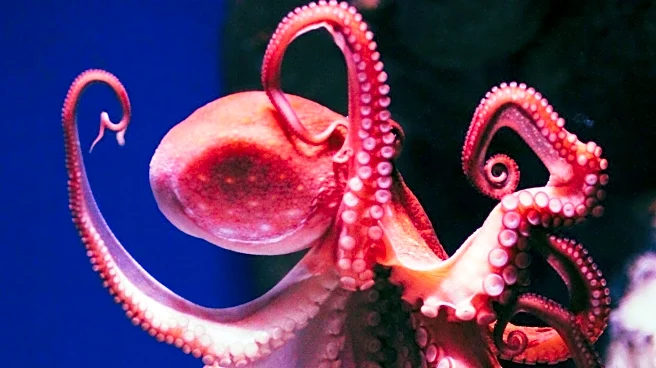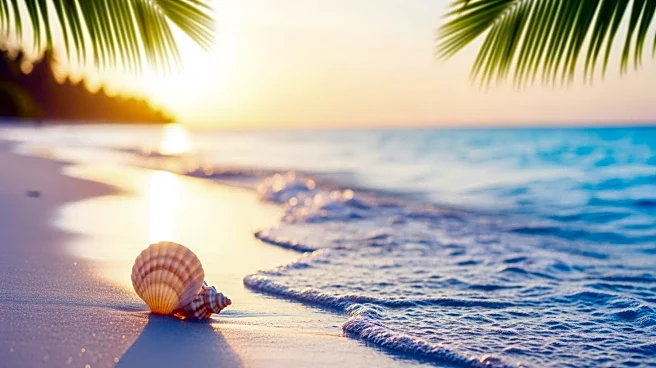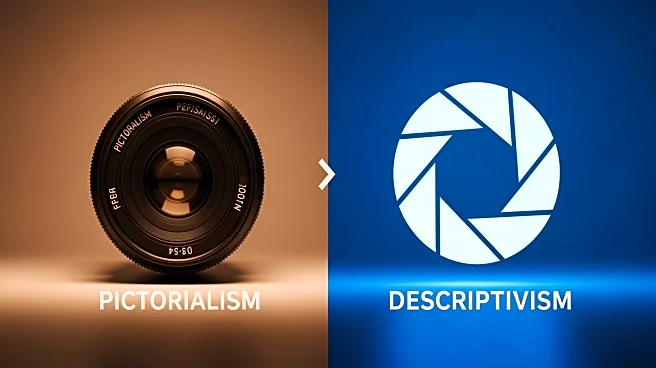What's Happening?
Ghost, a giant Pacific octopus residing at the Aquarium of the Pacific in Long Beach, California, is receiving an outpouring of affection as she enters the final stage of her life. Known as senescence, this phase involves Ghost dedicating her remaining energy to caring for her eggs, which are unfertilized and will not hatch. Ghost, originally from British Columbia, Canada, arrived at the aquarium in May 2024 and has since grown from 3 pounds to over 50 pounds. Her caregivers have noted her active and interactive nature, often engaging in enrichment activities designed to simulate hunting in the wild. Ghost's presence has left a lasting impression on visitors, some of whom have shared memories and tributes on social media.
Why It's Important?
Ghost's story highlights the emotional connection between humans and marine life, emphasizing the role of aquariums in education and conservation. Her life and interactions have inspired visitors, including marine biology students, to pursue studies in the field. The attention given to Ghost during her final days underscores the importance of understanding and preserving marine ecosystems. As Ghost's life comes to an end, the aquarium has introduced a new octopus to continue educating the public, ensuring that the legacy of marine education and awareness persists.
What's Next?
The Aquarium of the Pacific will continue to provide special care for Ghost in her private tank as she nears the end of her life. Meanwhile, the newly arrived octopus will be assessed for its personality before being named, and it will take on the role of engaging and educating visitors. The aquarium staff will continue to develop enrichment activities to simulate natural behaviors, fostering a deeper understanding of octopus intelligence and behavior among the public.
Beyond the Headlines
Ghost's story offers insights into the ethical considerations of keeping intelligent marine animals in captivity. The aquarium's approach to enrichment and interaction with Ghost reflects a commitment to animal welfare and education. This case also raises awareness about the natural life cycle of octopuses and the challenges they face in the wild, promoting conservation efforts and responsible marine practices.










